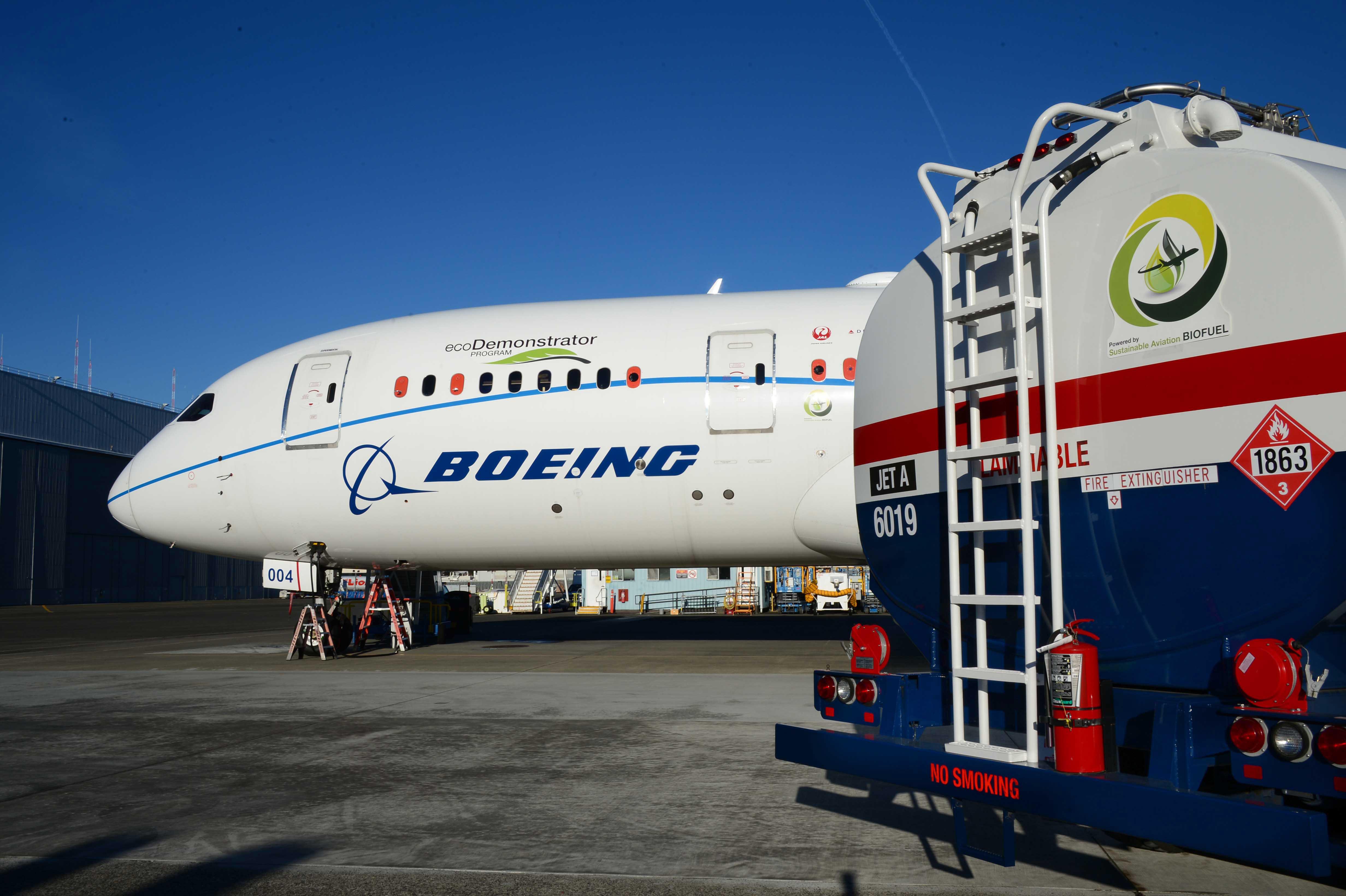
As part of broader company efforts to meet future emission reduction goals by 2050, Boeing has revealed plans to certify all its commercial aircraft for operation on 100% sustainable aviation fuels (SAFs) by 2030.
Although sustainable fuels have been identified as the best, and likely only, means for the commercial aviation industry to reduce carbon emissions by 50% from 2005 levels by 2050, Boeing says this will only be possible if a concerted effort is taken now. “We believe SAF is underutilized for lots of complicated reasons,” says Sean Newsum, director of sustainability strategy at Boeing. “We want to take action where we are able, and this is something that can help move the needle.”
Although industry, scientific and government groups have concurred that SAFs reduce CO2 emissions by up to 80% over the fuel’s life cycle with the potential to reach 100% in the future, current fuel specifications only allow a maximum 50/50 blend with conventional jet fuel. To meet internationally agreed carbon reduction targets by 2050 Boeing says aircraft will need the capability to operate on 100% SAF decades in advance.
“With an aircraft life span measured between 20-25 years, to meet the 2050 timeframe, then aircraft will have to be capable [of 100% SAF] by 2030,” says Newsum. Boeing’s target, building on more than a decade of work on alternative fuels, is to increase interactions with fuel providers, regulators and engine makers “to eliminate that limit,” he says. Limits on the proportion of SAF to conventional fuels have been set to enable blended fuels to be “drop-in” and useable by turbine-powered aircraft without the need for any system or engine modification.
Although Boeing is yet to define its approach to the certification initiative, or which aircraft model or models may be processed first, Newsum says the effort will focus on ensuring fuel systems are safe to handle SAFs, as well as validating the specifications of the fuels themselves. The work is designed to avoid concerns concerning shrinkage of seals and hoses, or even bacterial and fungal growth occurring in systems using pure SAF that is not mixed with paraffin-based additives.
“This is going to require real action across the industry to make it happen,” says Newsum—who points to the example of progress in California where state and federally-backed SAF providers have managed to develop alternative fuels that are competitively priced to conventional jet fuels.
Boeing’s certification effort will build on work going back to 2008 when it began early alternative fuel initiatives with airlines, engine manufacturers and others to conduct biofuel test flights. Having also worked to gain approval for sustainable fuels in 2011, the company tested various alternative SAFs and in 2018 conducted the world’s first commercial aircraft flight using 100% sustainable fuel with a 777 freighter during that year’s ecoDemonstrator flight-test program. Follow-on tests using other SAFs has continued with subsequent 787-based ecoDemonstrators.

